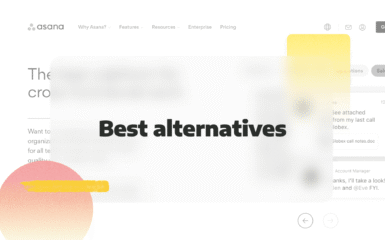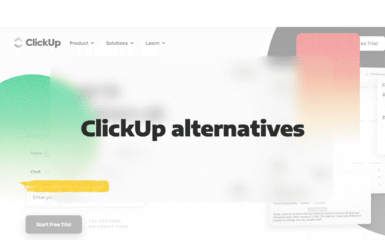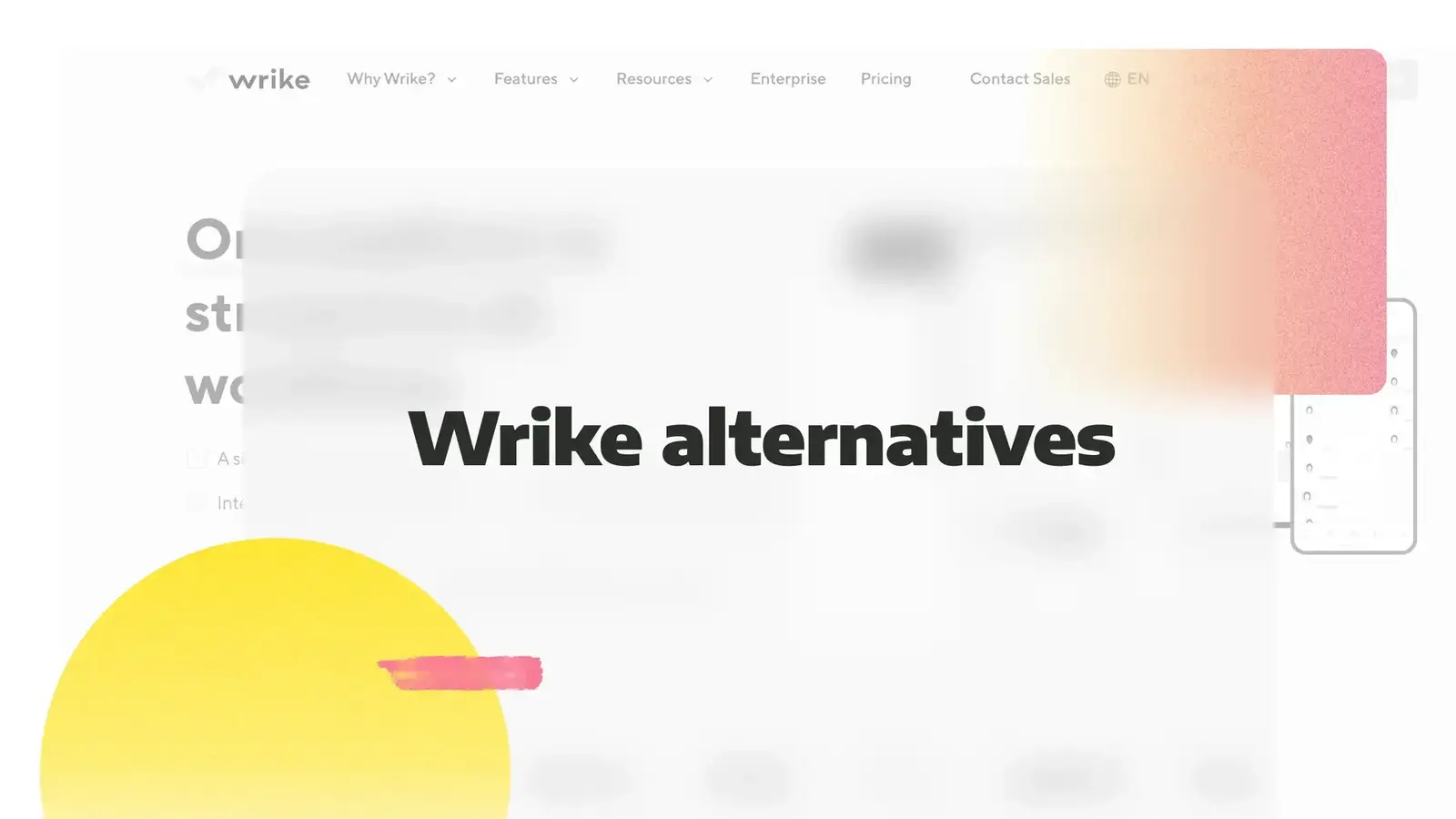
With many businesses adopting a hybrid work model after the COVID-19 pandemic, it’s no wonder that 79% of respondents started using collaboration software to manage their ongoing projects.
While many value Wrike as an efficient project management system, the tool has some drawbacks, like a steep learning curve and difficulty setting up notifications on the desktop app. It prompts many users to look for Wrike alternatives.
If you are interested in robust team management software that could make a good Wrike alternative, this article is for you.
The best Wrike alternatives & competitors: selection criteria
When deciding on the best project management workflow solution for your organization, you have to consider various factors like the complexity of your project, the number of your teams, and their sizes. Regardless, some things are always essential in a work management solution. We listed them below:
Features
A good task management software should offer features like:
Customizable workflows
Kanban board
Calendar view
Task details
Team collaboration options
Integrations
Managing teams and complex projects requires seamless integrations. Your task management tool should integrate with communication tools like Slack or Teams, your calendar, email, and other industry-specific tools.
Pricing
We analyzed pricing plans and ensured there was an option for every budget. Though many project management tools offer a free plan, its features can differ significantly from the paid ones. We presented all the pricing options and showed how they vary.
6 best Wrike alternatives & competitors: detailed overview
Here’s a list of Wrike alternatives for project management we selected for you. We hope you find something that answers your needs.
workstreams.ai
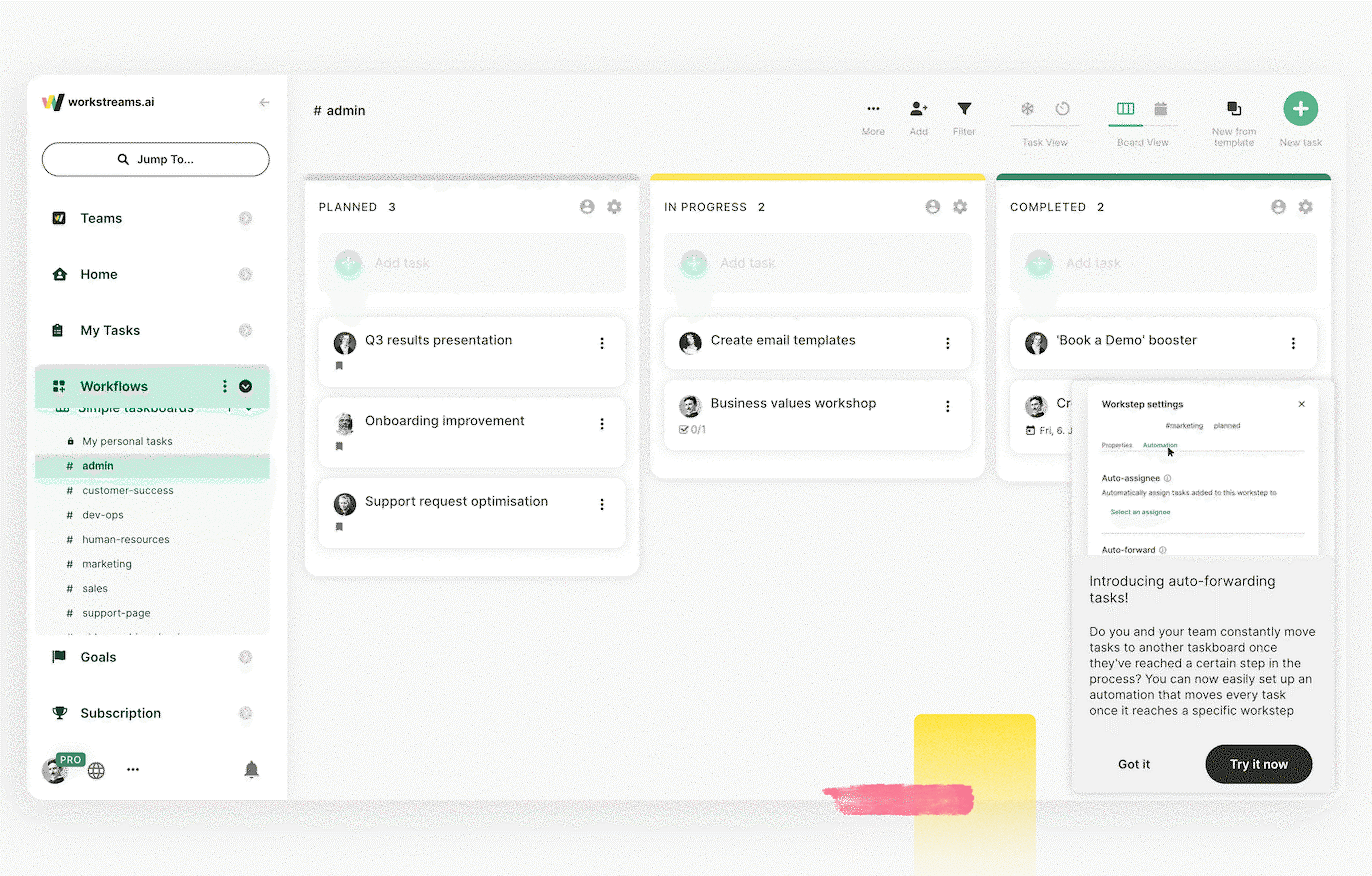
workstreams.ai is a Wrike alternative that combines task and workflow management with collaboration and communication.
Our workflow management software is based on Kanban boards, one of the most essential project management techniques. You can choose one of many customizable workflows or create your own workflow.
workstreams.ai offers a library of workflow examples for streamlining processes, such as:
Moreover, the tool offers the following options when creating or editing tasks:
Add custom fields
Add smart labels
Create subtasks
Automate recurring tasks
Add checkable to-do lists
Set start and due dates
Attach documents, files, photos, and links
Automatically assign tasks to team members

workstreams.ai takes many project management features to the next level. For example, along with time tracking, it provides data-based estimations of the task duration. The time allocation feature helps you plan projects, identify bottlenecks, and make data-based decisions.
Regarding communication among team members, the tool allows you to create designated discussion threads to browse conversations easily.
You can also integrate this project management solution with your existing tools. When you combine it with Slack or Microsoft Teams, you will receive notifications about updates and changes in those channels.
workstreams.ai can also make a great addition to Trello if you already use this tool for project management. You'll get more flexibility and ample space to add task details.
Integrating workstreams.ai with your email and calendar will help you schedule recurring tasks or plan the month. Its Webhook integration is useful for dev-related automation.
Features
Calendar view
Advanced labels
Customizable workflows
Pricing
Free plan: Free for up to three members, includes all Pro workstreams.ai features
Pro plan: $7.99 per user/month, includes unlimited workflows and unlimited automation
Enterprise: Custom pricing upon request, includes tailored onboarding and custom development
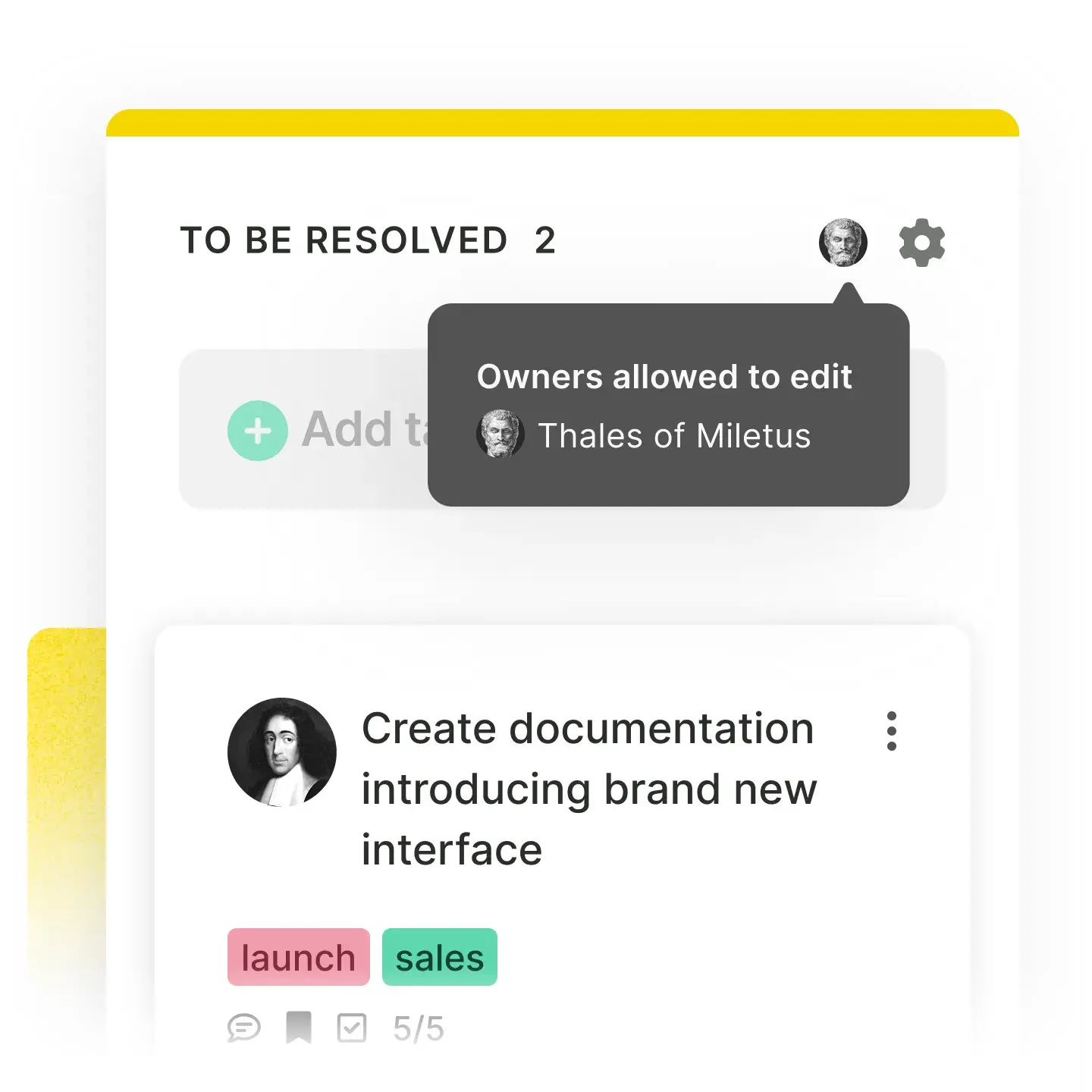
monday.com

Image source: PCMag.com
monday.com is a known Wrike alternative for project management. When the platform launched, it served exclusively for team collaboration. Today, it includes several other project management workflows, from marketing and customer relationships to human resources.
The tool is highly flexible. When you sign up, it customizes the interface to reflect your industry and role. It has specialized project management functionality for different teams, such as:
IT
HR
Sales
Marketing
Operations
Product development
Those teams can use specially designed templates and pre-made workflows.
The user-friendly interface lets you choose from views like Gantt, Kanban, Timeline, or Calendar.
Though the tool lacks a built-in chat, it has other communication solutions, like adding comments and notes. It also allows for sending quick questions to your teammates and manager.
You can connect monday.com to 200 other tools, such as Salesforce, Microsoft Teams, Slack, and more.
The downsides of using the software include a learning curve when it comes to building and automating workflows. Some minor integration issues also occur, leading to delays in data exports. Explore monday.com alternatives if you'd prefer a different tool option.
Features
Advanced automation
Different types of boards
Industry-specific workflows
Document and file management
Pricing
Free plan: Includes the most essential features for up to two team members
Basic plan: €8 per user/month, includes unlimited elements and priority customer service
Standard plan: €10 per user/month, includes timeline views and automations
Pro plan: €19 per user/month, includes time tracking and dependency columns
Enterprise plan: Custom pricing, includes admin features, custom branding, and 24/7 support
ClickUp

Image source: G2.com
ClickUp is a solution suitable for managing project documentation, assigning tasks, and tracking goals.
The tool provides different views:
List view, resembling a to-do list
Board view, ideal for workflows
Gantt view, for scheduling projects
ClickUp aims to provide users with a versatile app that could replace various other apps and avoid digital clutter. That's why the app is so rich in features. For example, it allows you to use over 50 built-in widgets to create your own dashboard. Some of those widgets include:
Sprints
Time tracking
Calculations
Progress tracking
Workload management
This collaborative project management software offers visual canvases to enhance team cooperation and idea generation. It is excellent for mapping, brainstorming, and building workflows as a team. A built-in chat allows your team to communicate without opening another app.
ClickUp's integrations include over 1,000 apps like Slack, Gmail, HubSpot, and Zoom.
The app's versatility has some downsides, like a relatively steep learning curve. When many people work on the same project, the user interface becomes cluttered and challenging to navigate. If you prefer a more straightforward app, check out ClickUp alternatives.
Features
Goal tracking
Team collaboration
Document management
Customizable dashboards
Pricing
Free plan: Includes unlimited tasks, Kanban boards, and calendar view
Unlimited plan: $7 per user/month with unlimited integrations and Agile workflow reporting features
Business plan: $12 per user/month with advanced automation, timelines, and mind maps
Enterprise: Custom pricing, includes unlimited custom roles and customer success manager
Asana
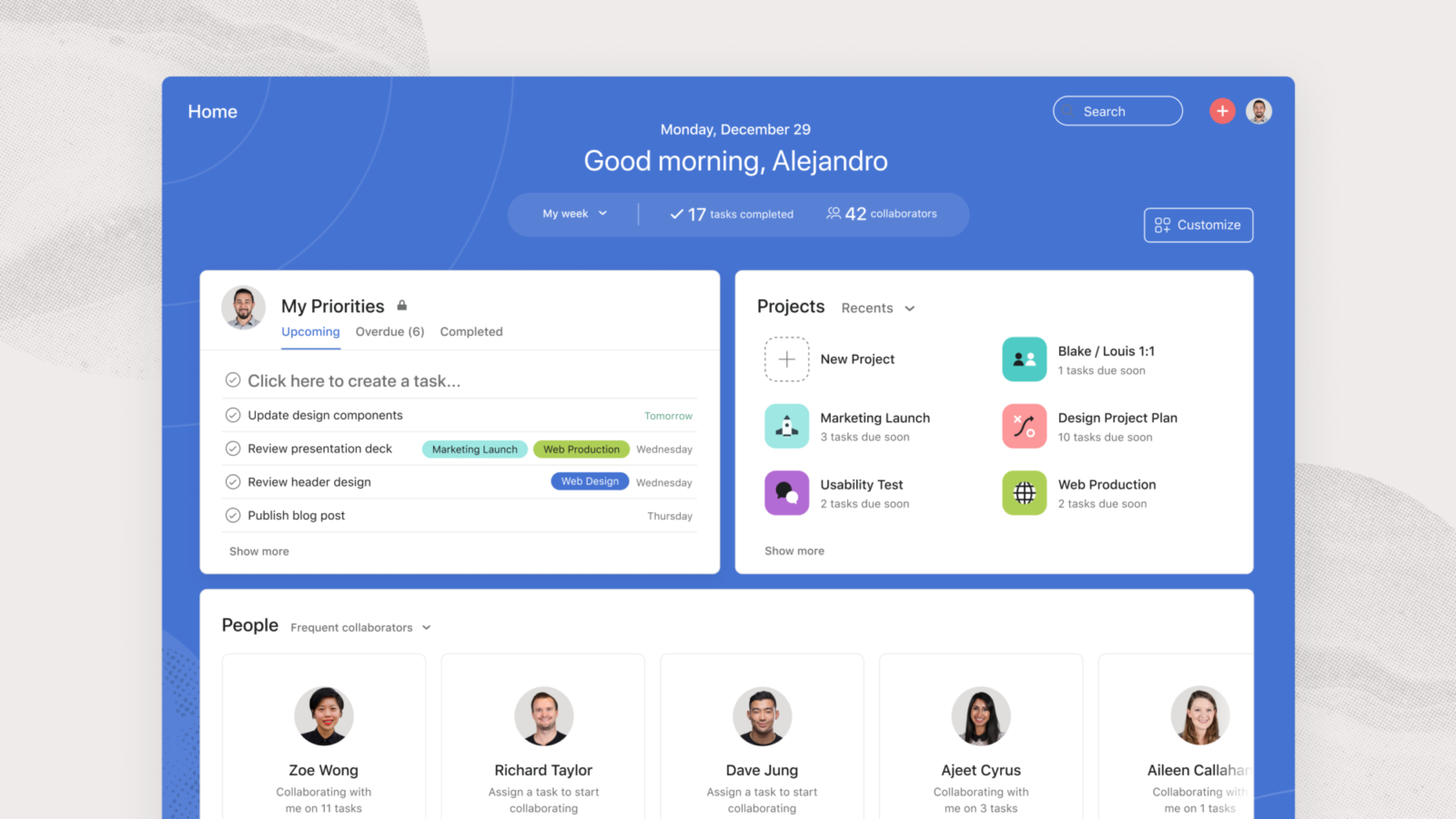
Image source: G2.com
Anyone interested in project management tools must have heard about Asana. It was one of the first tools for agile projects on the market. The platform offers various uses and is still very popular among teams worldwide.
Asana allows you to set deadlines and due dates, track milestones, and add subtasks. You can manage multiple projects simultaneously, add external collaborators as guests, and collaborate across teams on shared projects in real-time.
You can use it in different modes:
Gantt charts
To-do list
Kanban boards
Calendar view, and many more
This intuitive project management platform has a workflow builder, allowing for procedure systematization and workflow automation. It also offers customizable project templates that you can use to create your own workflows that will serve as a blueprint for new ones.
Asana allows you to add comments, create announcements, and send messages.
The tool integrates with several apps, like ClockWise, Google Calendar, Slack, and Microsoft Teams.
Asana has many positive reviews, though some users think it should add shortcuts due to numerous features and that tags and labels require improvement. If these downsides discourage you, consider some of the Asana alternatives.
Features
Milestone tracking
Workflow automation
External project members
Different types of boards
Pricing
Basic plan: Free, includes task lists, calendars, and boards
Premium plan: $10.99 per user monthly, includes timelines, custom fields, and advanced search options
Business plan: $24.99 per user monthly, includes portfolios, goals, and workload organization
Enterprise plan: Custom pricing, includes advanced admin features, custom branding, and 24/7 customer support
Smartsheet
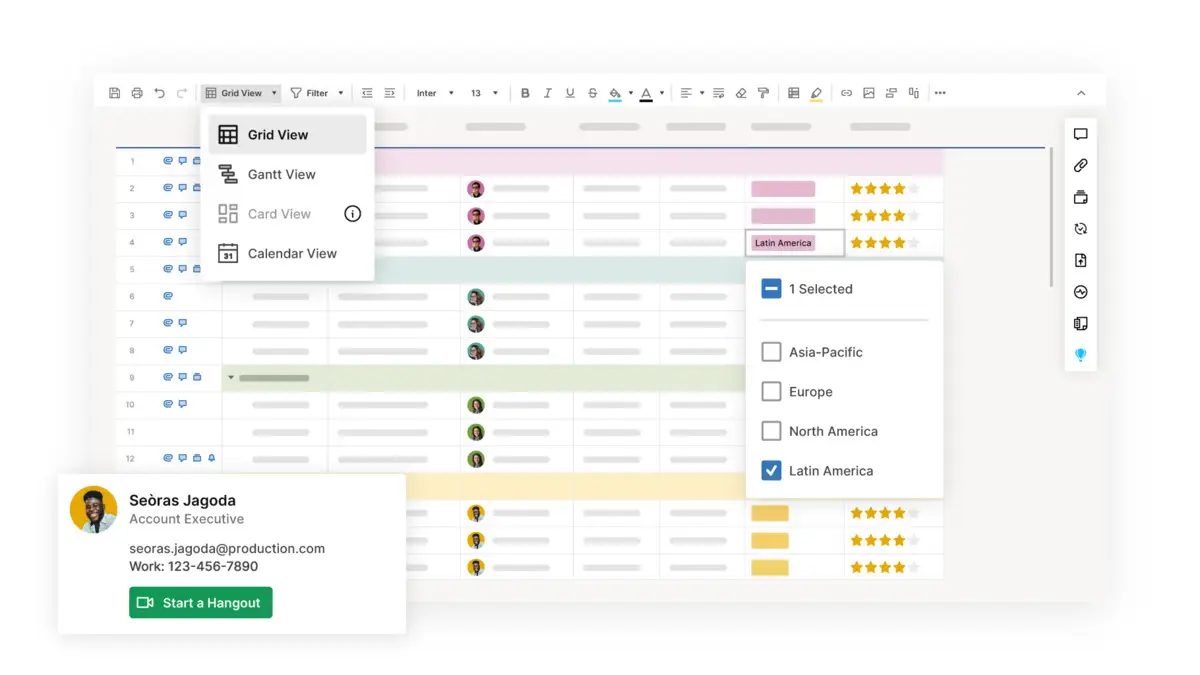
Image source: ComputerWorld
Smartsheet is a project management tool designed in a spreadsheet style. This solution allows you to control multiple project tasks and move around dozens of parts to optimize workflows and collaborate effectively.
The tool may be perfect for people with a lot of experience using spreadsheets for project management. Its interface is similar to traditional spreadsheet options like Excel or Google Sheets. Still, it offers plenty of additional options like:
Assigning tasks
Tracking projects
Managing calendars
Sharing documents
Real-time commenting
Reporting across multiple sheets in a single view
Smartheet offers highly customizable templates for various use cases like product development, human resources, or information technology.
The tool offers many integrations with other apps and platforms like Salesforce, Microsoft Project, Google Drive, Dropbox, Evernote, GitHub, Zendesk, and Zapier.
Smartsheet's interface has a drag-and-drop feature that allows you to create task dependencies and schedule complex projects in a few clicks. Its Gantt chart reacts to changes in other tasks and dependencies and automatically adjusts timelines.
Though the interface offers plenty of possibilities, it may not be easy to understand for users without experience in using spreadsheets. If you think it might be an obstacle, consider using Smartsheet alternatives.
Features
Customizable workflows
Collaboration tools
Multiple view types (including Kanban and calendar view)
Document generation with e-signature
Reports
Pricing
Free plan: For one user and up to two editors, includes two sheets and 100 automations per month
Pro plan: €6 per user/month, includes unlimited sheets, dashboards, and reports
Business plan: €22 per user/month, includes unlimited free editors and forms with conditional logic
Enterprise: Custom pricing, includes single sign-on and directory integration
Jira
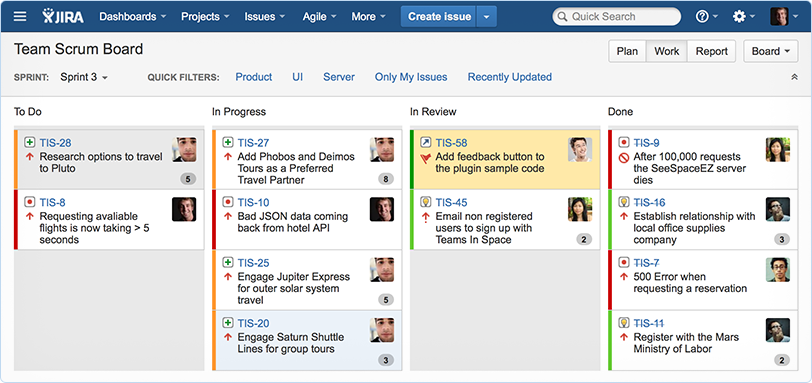
Image source: G2.com
Jira came into being as a tool for software development and bug tracking. Over time, it became one of the most recognizable project management solutions, providing many collaboration features.
This online project management tool enables users to visualize workflows and track progress in real-time using scrum boards and Kanban boards. The platform supports agile sprints with various project views like story points and user stories.
Project managers can generate different reports to gain insights into their team's performance. The reporting features of Jira include:
Velocity charts
Burnup charts
Version reports
Sprint reports
Burndown charts
Cumulative flow diagrams
Though Jira leans toward software development teams, other organizational departments can also find it very useful. Thanks to its advanced project management features, it can be handy for marketing teams who plan the launch of complex projects and large-scale events. Or it can enhance the work of human resources, thanks to the customizable workflows that can streamline hiring and onboarding processes.
You can improve Jira’s functionality by integrating it with various apps like Opsgenie, Jenkins, Dynatrace, GitHub, and Git integration for Jira.
On the downside, Jira’s collaboration tools are limited to functionalities like assigning tasks or notifying team members. Another drawback is that the numerous complex features make it challenging to learn for new users. Check some Jira alternatives to find a tool with better collaboration features and a shorter learning curve.
Features
Intuitive interface
Communication tools
Reporting tools
Calendar view
Description field for task details
Pricing
Free plan: For up to ten users, includes unlimited project boards and reporting features
Standard: $7.75 per user/month for up to 35,000 users, includes audit logs and data residency
Premium: $15,25 per user/month, includes advanced roadmaps and project archiving
Enterprise: Custom pricing, includes up to 150 sites and centralized security controls
The best Wrike alternatives & competitors: comparison table
Platform |
Key features |
Pricing starting at |
Best for |
Wrike |
|
$9.80 per user/month |
Task management |
workstreams.ai |
|
$7.99 per user/ month |
Streamlining workflow management for SMEs |
monday.com |
|
€8 per user/month |
Marketing teams |
ClickUp |
|
$7 per user/month |
Team collaboration |
Asana |
|
$10.99 per user/month |
Managing complex projects |
Smartsheet |
|
€6 per user/month |
Modern work management you can scale |
Jira |
|
$7.75 per user/ month |
Software development teams |
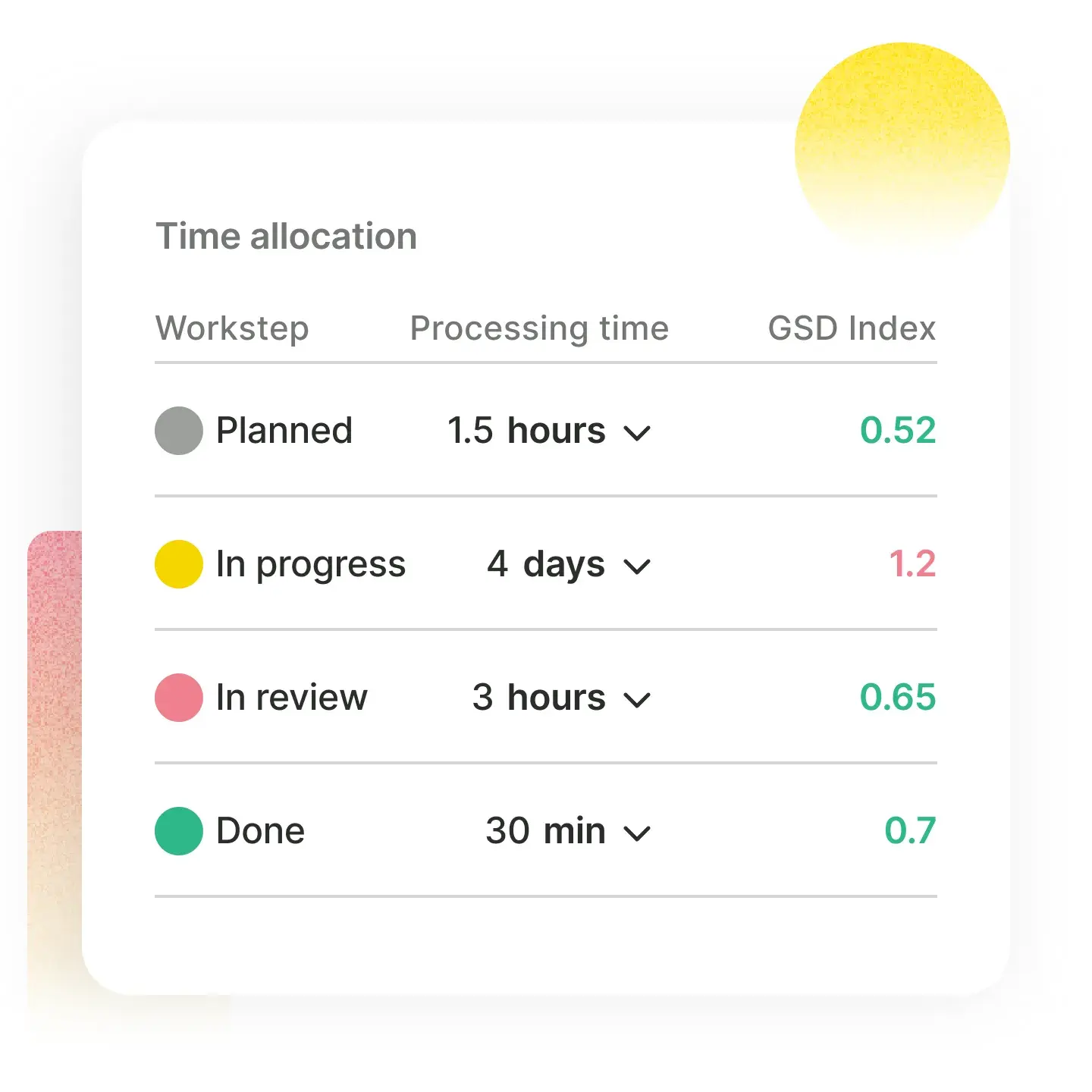
Conclusion
Choosing the right project management software can transform your work organization. workstreams.ai can be a great Wrike alternative because:
It's excellent for SMEs and can streamline processes like account management, providing feedback, hiring, etc.
Thanks to Slack and MS Teams integrations, it allows you to create tasks directly in your chats
It provides features such as time allocation, in-app calendar, frozen tasks, auto-forwarding, and flexible Kanban
On top of that, workstreams.ai offers a very attractive pricing plan. The Free plan, with all workstreams.ai features, is free for up to three members. Larger teams can get a 14-day free trial. Sign up for workstrams.ai to see how it can streamline your workflows and improve team collaboration.
FAQs
What is the Microsoft equivalent of Wrike?
Microsoft Project is the Microsoft equivalent of Wrike. It is a planning application available on the Microsoft 365 platform. It helps teams organize work, manage projects, and collaborate more effectively.
Which is better: Asana or Wrike?
Both Asana and Wrike are solid solutions for project planning, and the choice between them depends on the user's or team's needs. Asana is best for task management that requires collaboration across teams or functions, while Wrike is best for those who desire to customize as much as possible to fit their company.
Is Wrike a good project management tool?
Wrike is known for its ease of use and flexibility. It offers a built-in resource management platform that allows users to prioritize tasks, track progress, and optimize individual performance. Here are Wrike’s ratings on popular review sites:
Capterra: 4.3 out of 5 based on 2,506 reviews
G2: 4.2 out of 5 based on 3,494 reviews
GetApp: 4.3 out of 5 based on over 2,504 reviews
Users find this tool helpful for managing project and milestones. They like how Gantt charts help visualize progress. Overall, it's a good project management tool.
Is Jira similar to Wrike?
Both Jira and Wrike are project management tools you can use to track and coordinate projects. They have simple onboarding processes and can serve for agile and non-agile projects. However, Jira mostly focuses on software development, while Wrike is a better all-rounder.
Is Wrike better than ClickUp?
Both tools have their strengths and weaknesses. The choice between them depends on the specific needs of the user team.
For example, ClickUp has a native messaging feature enabling users to instantly connect with other team members for improved cooperation. In contrast, Wrike users must use a third-party app for messaging. On the other hand, Wrike offers more robust resource management features than ClickUp.
What are the negatives of Wrike?
Here are some of the negatives of Wrike:
Lack of note-taking tool
Overwhelming for new users
Delayed notifications from some apps
